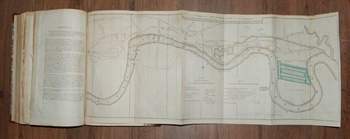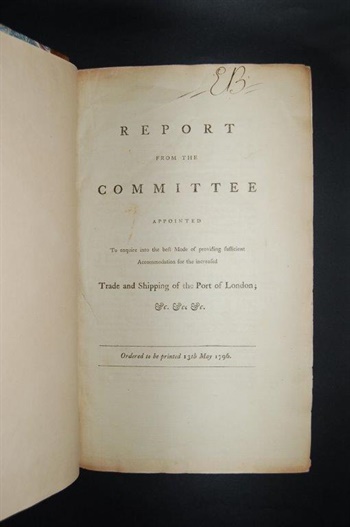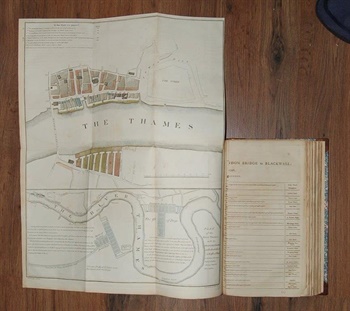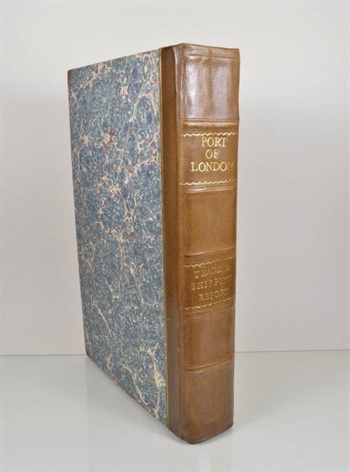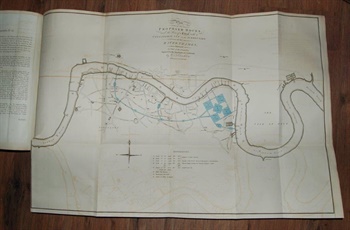Book Details
PORT OF LONDON.. Report from the Committee appointed to enquire into the best mode of providing sufficient accommodation for the increased trade and shipping of the port of London; &c. &c. &c.1796
London: Ordered to be printed 13th May, Folio (325 x 190 mm), xl, [8], 5-216, [244]pp., 18 folding plans (9 hand coloured), one folding plate of a boat, and 8 folding tables, cont. ownership initials EB at head of title page, text nice and clean, bound in recent half calf, marbled boards, raised bands. During the eighteenth century the rate of increase of the volume of the trade of the Port fluctuated with the alternating periods of peace and war. Between 1700 and 1770 the commerce of the Port was nearly doubled and from 1770 to 1795 (only 25 years) it again doubled. In 1792 imports into England amounted to £17,898,000 and exports £23,674,000. London's share was £12,072,000 and £14,743,000 respectively, or nearly 65 per cent. of the whole. The greatest increases in commodities imported were sugar, rum, dyewoods, ginger and pimento from the West Indies. Some idea of the state of congestion that existed in the river at this time may be gathered from the fact that in the Upper Pool, 1,775 vessels were allowed to moor simultaneously in a space adapted for about 545. The position was aggravated also by the large number of craft, estimated at about 3,500, employed to convey cargoes from the moorings to the wharves. Goods remained for weeks at a time in lighters before they could be dealt with; this exposed them to the attacks of the weather and the depredations of river thieves who resorted to the Port in large numbers operating lucrative and well-organised trade in river plunder, at which it is recorded revenue officers notoriously connived. The several classes of thieves were known by designations applied to the recognised branches of their work. Among these may be mentioned River Pirates, Night Plunderers, Light Horsemen, Heavy Horsemen, Scuffle-Hunters and Mud Larks. The wharf proprietors resisted every effort to provide the addition of a single foot of accommodation. So crowded and over burdened did the Port become that trade and navigation were carried on under difficulties which must soon have diverted a large measure of its commerce to other ports. Eventually in 1796 a Parliamentary Committee of the House of Commons was "appointed to enquire into the best mode of providing sufficient accommodation for the increased trade and shipping of the Port." The Committee prepared an exhaustive report but did not succeed in formulating any definite recommendations for improving matters. Despite the urgency of the situation, it was not until 1799 that Parliament authorised the construction of a dock on the Isle of Dogs "for rendering more commodious and better regulating the Port of London" and in particular to secure that "West India produce might be effectually secure from loss by theft or other causes and the public revenue greatly benefited." Ref: Port of London Authority History. ESTC T123672, BL, Marsh's Library, Oxford, Senate House, Univ. of London; Philadelphia, Library of Congress, Minnesota.
Stock #39313

